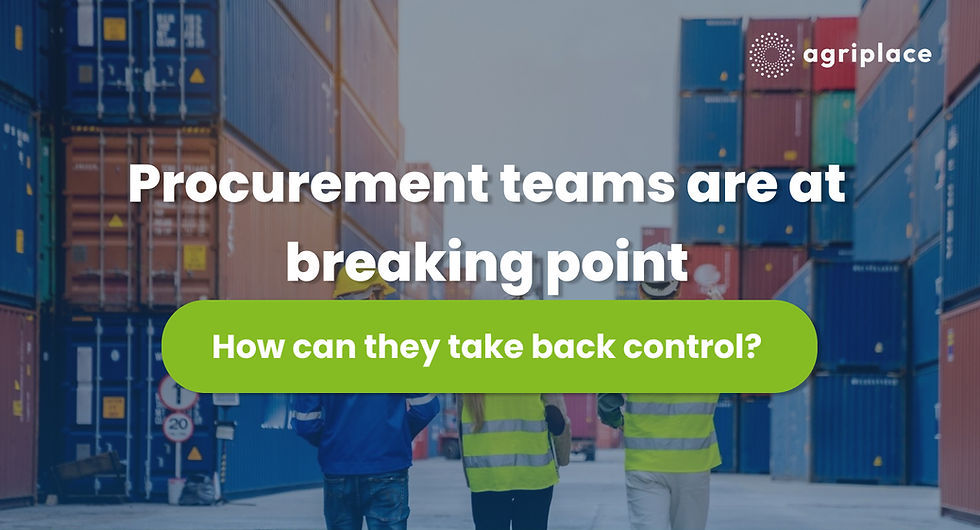Agriplace Welcomes New Database Connection: QS
- Jun 27, 2023
- 3 min read
Updated: Sep 24, 2025

In today's dynamic business landscape, real-time insights and efficient supply chain management are paramount to any business success. At the forefront of this journey, we delve into the world of database connections and their pivotal role in empowering businesses with comprehensive supply chain solutions.
Imagine having seamless access to critical supplier information such as their; GNN/GNL compliance status, product compliance, country of destination and the list goes on, all of which enable you to ensure the highest standards of quality and compliance throughout your supply chain. This is where the power of database connections comes into play. By integrating diverse databases into a single platform, businesses gain a holistic view of supplier approval status, compliance details, and other vital information across various production scopes.
The German QS database stands out as a significant player in the realm of data providers, offering a strong quality schema for food products. Its integration into our platform has opened new doors in the German food sectors. QS certification carries significant weight in the produce and meat sectors, making it crucial for businesses to assess supplier approval status effectively. Through our seamless QS integration, clients can effortlessly retrieve essential information by registering the QS locationId within our platform.
But why are these database connections so essential? Simply put, they provide the most real-time possible access to valuable insights. By continuously fetching and updating data from these databases, businesses can make informed decisions based on the most up-to-date information available. This form of agility and responsiveness are vital in today's fast-paced market, where supply chain dynamics can change rapidly. Moreover, some of these connections, such as the QS, offer the flexibility to force an immediate refresh, ensuring that decision-makers have the most current data at their fingertips.
When it comes to database connections, it's important to recognize that each database operates differently. Take the QS database, for instance, unlike other databases, QS does not report an expiry date for approval status. To ensure alignment with the QS approach, where QS approval can be revoked at any time, we present QS as a status rather than creating a database extract mimicking certificates with an expiry date. This approach ensures that our clients receive accurate and consistent information, providing a transparent view of supplier compliance, including the current delivery authorization status (aktuelle Lieferberechtigung), along with other critical compliance details.
Beyond QS, our comprehensive supply chain solution extends to collaborations with other databases such as GLOBALG.A.P., BRCGS, GroenAgro control, Eurofins, PlanetProof and only more on the way. These connections offer additional functionalities that truly provide a step-up in the supply chain compliance game. By integrating these databases into our platform, we empower businesses with an all-encompassing view of their supply chain landscape, facilitating effective decision-making and ensuring straight forward compliance at every step.
All of which lead the concluding statement, that database connections play a transformative role in supply chain certification tracking. The power of real-time insights, made possible by connecting to databases like the QS, empowers businesses to make informed decisions, maintain demanding quality standards, and ensure compliance across their supply chains. By embracing these integrations, businesses do not only gain a competitive edge, but they help drive further efficiency in their operations, all of which lead us towards the collective final goal; having a more transparent and sustainable future.
Ease your curiosity by exploring more information on our website.



